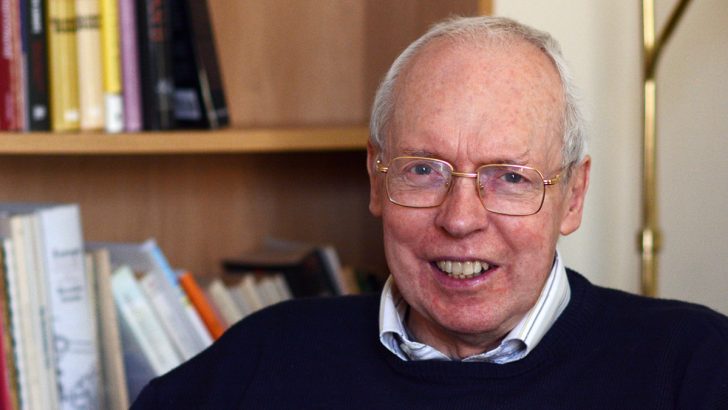Wisdom at the Crossroads: The Life and Thought of Michael Paul Gallagher SJ
by Thomas G. Casey SJ (Messenger Publications, €12.95)
Anthony Redmond
The well-known writer, educator and theologian, Fr Michael Paul Gallagher SJ died from cancer on November 6, 2015. He was a brilliant, kind gentleman in the true sense of the word.
I had the good fortune to meet Michael Paul on a number of occasions, and I found him such a good listener and one who offered sound advice.
Some years later, when I visited Rome where he was then living, he invited me to the famous Gesù and having him as a guide there was an educational experience. He was so kind and such an interesting man. There was a delightful sensitivity and serenity about him. I have the fondest memories of him.
Thomas G. Casey is an Irish Jesuit priest. As a student, he lived in community for four years with Michael Paul Gallagher and later they were colleagues for 10 years on the teaching staff of the Pontifical Gregorian University in Rome. He is currently Dean of Philosophy at St Patrick’s College, Maynooth.
Introduction
Wisdom at the Crossroads is an introduction to the life and thought of Michael Paul Gallagher and it is clear that Fr Casey has great admiration and respect for him. “He was an orthodox thinker, but in a compassionate manner,” he writes.
“He didn’t threaten those who were confused or lost, but reached out to them with kindness and understanding. He had a deep respect for them, wherever they were on the journey of life. He managed to hold together a deep fidelity to the longstanding wisdom of the Church with a true respect for all that was best in the history of thought, whether ancient, medieval or contemporary.”
Michael Paul was always deeply interested in what atheists had to say. He respected their sincerity and conviction. He enjoyed dialogue and he was a great listener. In his wonderful book, Clashing Symbols, he analyses the many cultural influences of modernity and post-modernity on belief in God. He draws our attention to the words of a Spanish theologian who said that the very question of God remains something irrelevant, or even non-existent, for the vast majority of people. God is missing, but is not missed.
Fr Gallagher tells us that what we are witnessing is no longer what de Lubac, over a generation ago, called the drama of atheistic humanism, but rather an undramatic limbo of non-being.
In a world devoid of God, morality ceases to have any intrinsic meaning. It becomes merely a matter of personal taste and has no absolute value.
Michael Paul says: “We will never get anywhere with religious questions until we realise that they belong to a personal region of truth, and that to face the question of God will involve the whole self.
“With this kind of search one cannot stand outside in a neutral fashion. Just as stained-glass windows cannot be viewed from outside the building, truth about God can never be grasped from an external perspective. It needs a logic of its own.”
Positive
There was always something bright and positive about Michael Paul, and he went out of his way to help and encourage others and give them hope.
Fr Casey writes about him: “He had a disarming gift for helping people to reach the threshold of wonder in their lives.
He invited them to open new doors into the mystery of themselves, so that they could discover a God who was beyond anything they had dared to imagine. Michael Paul was convinced that some experience of wonder must accompany the beginning of the religious journey. If this doesn’t happen, we fail to connect with the deepest longings within us and we also fail to see that the core of God’s revelation is an encounter of love.”
Thomas G. Casey’s book is excellent. It ends with a quotation from Michael Paul’s last book, Into Extra Time, written when he was dying. “I am struck by something so obvious. The world goes on without me and will go on without me. So who knows me except God?
There is an unreachable aloneness, a core of each person where only God enters to love and create. It is a space of secret, often invisible, belonging or intimacy, where nothing is without meaning, where eternity begins now, where all is being embraced in love.”


 Fr Michael Paul Gallagher SJ.
Fr Michael Paul Gallagher SJ. 